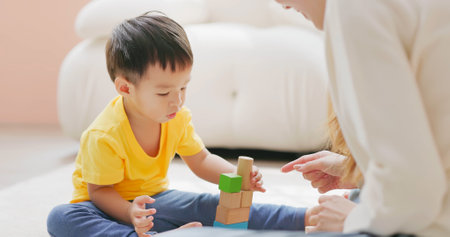Understanding Montessori Philosophy in the UK Context
The Montessori philosophy, developed by Dr Maria Montessori, centres on the belief that children learn best in an environment that supports independence, respects individuality, and encourages hands-on discovery. As a parent living in the UK, I found these core principles resonate deeply with our everyday routines and values. At its heart, Montessori education is about fostering a child’s natural curiosity and empowering them to take an active role in their learning—a concept that fits beautifully with the British emphasis on early childhood exploration and self-expression.
Adapting Montessori at home in the UK involves understanding both the universal aspects of the approach and tailoring them to our unique cultural context. For example, creating a “prepared environment” means not just child-sized furniture and accessible materials, but also incorporating familiar British elements—like seasonal nature walks in local parks or using traditional nursery rhymes as part of language activities. It’s about blending Montessori’s respect for the child’s pace with the UK’s appreciation for outdoor play, diverse literature, and community involvement. This thoughtful adaptation ensures that Montessori routines and activities feel both authentic to your family’s daily life and aligned with broader British values.
Setting Up a Montessori-Inspired Home Environment
Creating a Montessori-inspired environment at home doesn’t mean you need to completely redesign your living space or invest in expensive equipment. As a new parent living in the UK, I discovered that it’s possible to set up a safe and nurturing space for my child using everyday British home essentials and a little creativity. The key is to ensure everything is accessible, child-sized, and encourages independence—core values of the Montessori philosophy.
Adapting to British Home Layouts
Many UK homes have compact rooms and limited storage, so it’s important to make the most of what you have. Think about how your living room, kitchen, or even hallway can double up as learning spaces. For example, we use our under-stairs cupboard (a common feature in British homes) as an arts-and-crafts nook with low shelves for materials.
Essential Tips for Creating a Montessori-Friendly Space
| Area | Montessori Tip | UK-Friendly Product/Resource |
|---|---|---|
| Living Room | Low open shelves for toys and books within easy reach. | IKEA KALLAX unit (widely available across the UK) |
| Kitchen | Step stool for helping with simple food prep or washing hands. | B&Q wooden step stools; John Lewis child-safe utensils |
| Bedroom | Floor bed or low mattress for easy access and independence. | Dunelm single mattresses; Mothercare bedding sets |
| Bathroom | Small jug and bowl for self-care routines like hand washing. | Tesco basics; Sainsbury’s plastic bowls |
| Garden/Balcony | Nature table with seasonal finds from local parks or walks. | Morrisons baskets; Wilko trays |
Sourcing Materials Locally
You don’t have to shop at specialist stores—many UK supermarkets and high street shops stock suitable items. Charity shops are treasure troves for wooden puzzles, books, and child-sized furniture at reasonable prices. Plus, local community Facebook groups often have parents giving away gently used Montessori-friendly materials.
Safety Considerations in British Homes
Always secure furniture to the wall using safety straps (especially in older UK homes with uneven floors). Use socket covers, corner guards, and keep cleaning products locked away. Remember that British weather means indoor activities are essential—set up cosy reading nooks with soft lighting for rainy days.
The most important thing is to observe your child and adapt your space to their evolving needs. With some thoughtful tweaks, any UK home can become a welcoming Montessori haven that nurtures independence and curiosity every day.

3. Incorporating Montessori Routines into Daily Life
Bringing the Montessori philosophy into our UK home has been a journey of gentle trial and error, but Ive found that weaving Montessori routines into our daily life is both practical and rewarding. For us, it’s not about creating a classroom at home, but rather making small, meaningful adjustments to everyday activities so our children can thrive with more independence and confidence.
Independent Dressing
One of the first changes we made was encouraging independent dressing. In true British fashion, we set up a low wardrobe rail in the children’s room, making sure school uniforms and weather-appropriate jumpers are within easy reach. We also use picture labels for drawers (socks, PE kit, wellies), which really helps on busy mornings before the school run. While it takes longer at first, watching my little one master buttons and zips is worth every extra minute.
Meal Preparation
Meal preparation is another area where Montessori principles shine. Even on hectic weekday evenings, I invite my children to help set the table or wash vegetables for tea. On weekends when there’s more time, they’ll spread butter on toast or pour their own milk—sometimes with a bit of spillage! We keep child-sized utensils handy and use sturdy crockery from local shops (it’s more resilient than you’d think). This routine not only boosts their practical skills but also sparks lovely conversations about food and family traditions.
Cleaning and Tidying Up
Involving children in cleaning is surprisingly effective when approached the Montessori way. I provide child-sized dustpans and soft cloths so they can help wipe down surfaces or sweep up after messy crafts. Our after-school routine includes everyone pitching in to tidy toys or hang up coats (a peg at child height by the door makes this possible even for toddlers). At weekends, we might spend ten minutes together sorting laundry or watering plants—these shared chores build teamwork without feeling like a burden.
Blending Routines with British Family Life
The beauty of Montessori routines is their flexibility—they fit naturally around typical UK schedules. After school, instead of rushing straight to homework, we allow a few minutes for independent snack preparation or outdoor play in the garden, fostering autonomy and relaxation after a structured day. On rainy Saturdays (which we have plenty of!), indoor activities like baking scones or organising bookshelves become learning opportunities rather than chores.
Making It Work for Your Family
Ultimately, blending Montessori routines into daily life is about respecting your child’s pace while adapting to your family’s unique rhythm. With patience and consistency, these routines empower children to take ownership of their environment—whether that’s tying their own shoes for the walk to school or helping prepare a Sunday roast. Over time, these small steps lead to big leaps in confidence and capability.
4. UK-Friendly Montessori Activities for All Seasons
One of the joys of implementing Montessori philosophy at home is discovering activities that not only encourage independence and hands-on learning, but also embrace the unique character of life in the UK. Through my own experience as a parent, I’ve found that adapting Montessori principles to local weather and culture makes daily routines more meaningful and manageable. Here are some practical, season-proof activity ideas you can easily integrate into your family’s life, no matter the time of year.
Nature Walks in Local Parks
Whether it’s a brisk winter stroll or a gentle summer ramble, local parks offer endless opportunities for Montessori-inspired exploration. Encourage your child to observe seasonal changes in trees, spot local wildlife like squirrels or robins, and collect natural treasures such as acorns or colourful leaves. Equip them with a small basket or bag to carry their finds, and discuss what they notice along the way—this supports both observation skills and language development.
Gardening with British Plants
Gardening is a classic Montessori activity that fosters responsibility and respect for nature. In the UK, you can adapt this by growing native plants that thrive in our climate. Even if you don’t have a garden, window boxes or pots on a balcony work brilliantly. Children love planting seeds, watering them, and watching them grow over time. Here’s a simple table of UK-friendly plants to try throughout the year:
| Season | Plant Suggestions | Learning Opportunities |
|---|---|---|
| Spring | Daffodils, peas, lettuce | Life cycles, caring for living things |
| Summer | Sunflowers, strawberries, tomatoes | Harvesting food, measuring growth |
| Autumn | Pansies, carrots, kale | Colour changes, root systems |
| Winter | Snowdrops, herbs indoors (mint, chives) | Observation skills, sensory play |
Rain-Friendly Indoor Play Ideas
The British weather is famously unpredictable! On rainy days when outdoor play isn’t an option, there are plenty of Montessori-inspired activities you can do inside:
- Baking Together: Let your child pour ingredients, stir mixtures, and use safe utensils while making scones or fairy cakes—this builds practical life skills.
- Sensory Trays: Fill trays with dried beans or rice and add small scoops or spoons for pouring practice; add toy animals or vehicles for imaginative play.
- Cultural Activities: Listen to traditional British folk music or read classic picture books set in the UK (like The Tale of Peter Rabbit) to spark curiosity about local heritage.
- Puddle Jumping Prep: Organise wellies and raincoats independently before heading out for puddle jumping—turning even a grey day into an adventure!
Tuning Activities to Your Child’s Interests
No two children are exactly alike. The beauty of these activities is how adaptable they are—you can follow your child’s lead and adjust based on their age, interests and abilities. Whether it’s observing worms after rain or counting conkers in autumn, Montessori at home becomes truly special when it reflects your family’s unique place in the UK landscape.
5. Embracing British Culture through Montessori
One of the most rewarding aspects of raising children in the UK is the rich tapestry of traditions and community spirit that surrounds us. Integrating these British elements into a Montessori-inspired home can be both enjoyable and deeply meaningful for young children. By respecting and celebrating local customs, holidays, and ways of life, you help your little ones develop a strong sense of identity and belonging.
Incorporating British Traditions
Start by weaving classic British traditions into your daily and seasonal routines. For example, involve your child in preparing afternoon tea together—let them help set the table with small cups, pour their own milk, or spread jam on scones. During Pancake Day (Shrove Tuesday), invite your child to mix batter, flip pancakes safely with supervision, and join in the fun of tossing them! These hands-on experiences not only build practical skills but also connect children to cherished national customs.
Celebrating Local Holidays and Festivals
The UK calendar is full of celebrations that offer wonderful learning opportunities. At Christmas, encourage your child to make homemade crackers or natural decorations using Montessori principles of independence and creativity. On Bonfire Night, discuss fire safety and the history behind Guy Fawkes Night, perhaps creating simple artwork depicting fireworks. Even Remembrance Day can be approached gently by crafting red poppies together while talking about peace and gratitude at an age-appropriate level.
Connecting with the Local Community
Montessori philosophy values real-life experiences—and nothing brings this to life like participating in your local community. Visit the village fête or farmers’ market so your child can meet local producers, try British-grown fruit, or see craftspeople at work. Get involved in community gardening projects or charity events where even young children can contribute by planting seeds or making cards for neighbours. This fosters empathy, social awareness, and pride in one’s surroundings.
Nurturing Appreciation for Heritage
By blending Montessori methods with British culture at home, you nurture a respectful appreciation for heritage while supporting your child’s independence and curiosity. These shared moments—whether it’s singing traditional nursery rhymes, exploring historic sites on family walks, or attending local festivals—become treasured memories that root children in their unique cultural landscape while encouraging open-mindedness and joy in learning.
6. Resources and Support Networks for UK Families
Starting your Montessori journey at home can feel overwhelming, but thankfully there’s a vibrant and supportive network here in the UK to help you along the way. From my own experience as a new parent, connecting with others made all the difference—whether it was sharing practical tips or simply feeling reassured that I wasn’t alone. If you’re looking to deepen your understanding of Montessori philosophy and keep inspired with UK-friendly routines and activities, here are some great resources and communities worth exploring.
Montessori Organisations and Online Resources
The Montessori Society AMI UK is a fantastic starting point. They offer a wealth of information about Montessori education adapted for British families, from downloadable guides to local event listings. For parents who enjoy reading, the Montessori Family UK blog provides practical advice on setting up your home environment, activity ideas using everyday British household items, and even recommendations for UK-based suppliers of Montessori materials.
Support Groups and Parenting Communities
Joining a community can make implementing Montessori at home feel less daunting. Facebook groups such as “Montessori at Home UK” or “UK Montessori Parents” are excellent spaces for asking questions, finding inspiration for local activities (like incorporating British wildlife into nature walks), and swapping resources. Many local libraries in England, Scotland, Wales, and Northern Ireland host regular parenting meetups where Montessori themes are discussed informally—these can be invaluable for new parents seeking real-life connections.
Workshops and Local Classes
If you’re keen to learn hands-on or would like your child to socialise with others in a Montessori-inspired environment, look out for workshops in your area. Organisations like The British Montessori Society often list upcoming events ranging from introductory sessions to more specialised classes on topics like positive discipline or creating purposeful play spaces at home.
Continuing Your Learning Journey
The beauty of Montessori is that it’s a lifelong approach—for both children and parents! Many parents find it helpful to subscribe to newsletters from UK-based Montessori organisations or follow their social media pages for updates on new research, book recommendations, and webinars tailored to British families. Staying connected this way means you’ll always have fresh ideas for adapting routines as your child grows.
As you build your own support network—whether online or face-to-face—you’ll discover that the Montessori philosophy isn’t just about education; it’s about nurturing a community of curious, confident learners right here in the UK. Don’t hesitate to reach out and get involved—the encouragement and shared wisdom you’ll find can truly make your family’s Montessori experience richer and more rewarding.


